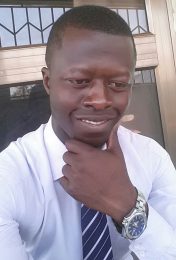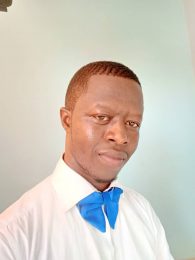We live in a world where many people are pursuing happiness yet continue to sow seeds of misery. Obviously, you cannot sow thorns and reap apples, and you cannot harvest when you have not planted. Every day, we constantly come into contact with many people, some of whom have been designated to transform our lives, but the seeds we sow in those personal relationships can be a bridge or barrier to our dream of living a successful or happier life as perceived in our society. Yes, every thought that we think, every word that we utter, every deed that we perform, and every feeling, fancy, and wish that awakens within us are simply SEEDS we are sowing in the field of life, which in due course will germinate, grow, and yield fruit for us to harvest.
In this PART II of “AS A MAN SOWED, SO SHALL HE REAP,” I am sharing with you the inspiring story of Roman Turski, which appeared in the Reader’s Digest, January 1953, and lessons we can draw from it for everyday life.
Roman Turski, an Air Force pilot from Poland, was on his way to Poland when his plane developed a mechanical problem upon reaching Germany. He made a forced landing in Germany for the plane to be repaired. He spent the night in a hotel.
Early morning the following day, when he stepped out of his hotel to buy a few souvenirs before checking out, a man came running to him in the corridor of the hotel. Outraged, he grabbed the stranger and was about to give him a piece of his mind but then saw that the man’s face was white with fear. Panting heavily, the stranger tried to wrench himself from Turski’s grip, saying, “Gestapo—Gestapo!” Turski knew only a little German and quickly understood that the stranger was running away from the German secret police.
Without wasting time, Turski ran with the man back to his hotel room and hid him under the bed. Turski took off his coat, messed up his hair, and sat up in bed like he’d just woken up. A few minutes later, the Gestapo (the police) burst through his door and requested his passport.
The police examined the passport, returned it, and shouted questions at him, to which he replied in German, ‘‘I don’t understand it,’’ a phrase he knew. The police then left without searching the room.
When the Gestapo (the police) left, Turski helped the man up from beneath his bed and pointed to Warsaw on his flying chart. By gesturing and drawing pictures in the margin of the map, Turski explained that he had an airplane and could take the man out of the country. He pointed to Warsaw, and the man’s expressive hands asked, “Would you take me there?”
Turski shook his head but drew pictures of police and prison bars to illustrate that he (the man) would be arrested upon arrival at any airport. Turski then made it clear that they would land in an open field just over the Polish border so the man could disembark. The man nodded with satisfaction, and his narrow face and dark brown eyes again conveyed his deep thanks.
At the airport in Germany, the customs and immigration men waved them through when Turski told them that the man was his friend and wanted to see him off. The plane was warmed up and ready for the flight. They quickly climbed in, and soon they were in the air.
As planned, they landed in a large field near Poland’s railway station. Turski showed the man where they were on the map, gave him most of his money, and wished him luck. Being touched, the man took Turski’s hand, looked at him wordlessly, and then walked rapidly into the bush.
When Turski arrived at the airport, there was a detachment of police waiting beside the immigration inspector. One of the police said, “We have a warrant to search your plane—you helped a man escape from Vienna.” Turski gave them the go-ahead, so they went in and searched his plane very thoroughly, and, of course, they had to let him go for lack of evidence.
Soon thereafter, the Second World War broke out and Poland was occupied by Germany. Turski flew to England, where he joined the Royal Air Force and became a war hero, destroying a number of the enemies’ planes before his own plane was crashed.
Turski had a fractured skull and was immediately taken to the hospital, but the head surgeon of the hospital to which he was taken believed that it would be almost useless to operate on him, looking at his condition. In short, there was no hope of life for Turski.
The following day, Turski’s accident and heroic act in the war were all over the newspapers in England. A surgeon from out of town volunteered to operate on Turski. The brain surgeon read a news item in the newspaper about a Polish hero, Roman Turski, shooting down five planes before crashing himself. The newspaper said his condition was hopeless. The surgeon asked the Royal Air Force at Edinburgh to fly him there to try to save the war hero. They agreed, and the hospital also allowed the brain surgeon to operate. The surgery went on successfully.
When Turski regained his consciousness and opened his eyes, he saw a narrow, familiar face with large brown eyes looking down at him with smiles. It was the brain surgeon.
“Remember me?” asked the brain surgeon. “You saved my life in Germany three years ago.” He spoke with only a trace of a German accent. His words ended Turski’s confusion, and he (Turski) immediately recalled the sensitive face and managed to ask, “How did you find me?” Do you work here?”
“It’s a long story,” the brain surgeon replied. “After you dropped me off, I made my way to Warsaw (the capital of Poland), where an old friend helped me. Just before the war, I escaped and managed to reach safety in Scotland. When I read the news, I immediately recalled your name, which you wrote on the margin of your map three years ago. I am an expert in brain surgery, so I came here, examined your condition, which was described in the newspaper as hopeless, and I felt that, at long last, I could do something about your situation, and thanks to God, the process has been successful, and you are back to life.”
Turski would live after recovery to receive decorations from four different governments for his heroism. Life is indeed a mystery. Turski saved a stranger he never knew and couldn’t understand his language, and that same stranger (a medical doctor) came back later to save Turski’s life when doctors gave up on him and described his condition as hopeless.
My dear reader, the greatest lesson I have discovered from this true story is that the world we live in is a small village and life in this world is like a swinging pendulum. You can find yourself at the top today and at the bottom tomorrow, or vice versa. Situations change, and the person you help today may turn out to be the one to lift you up in your toughest time of need in the future. Be inspired by the word of God in Luke 6:38 [NIV]: “Give, and it will be given to you. A good measure, pressed down, shaken together, and running over, will be poured into your lap. For with the measure you use, it will be measured to you.”
Whatever you give out comes back to you ultimately. Nothing is lost, so the good things you do today are the greatest and most secure investment in your life tomorrow. If you want to be happy, make others happy. Life works like a reflective mirror, which ensures without fail that what is received individually is only and always determined by what is given out or projected out individually. Never get tired of doing good to everybody who crosses your path because AS A MAN SOWED, SO SHALL HE REAP.
For more motivational stories with great heart-touching lessons that inspire hope and passion to do better each day in your life, visit www.ascopublications.com or ascopublications.com.
Please remember to share your comment about what you read with us and do us a great favor by promoting our works by sharing with your friends on social media (WhatsApp and Facebook).
Seiba Issifu
Asco Publications Limited
+233245898708





Great piece. Keep it up
@ Proff, Thanks for your encouragement
Refreshingly different 👍
Thanks bro. God bless you